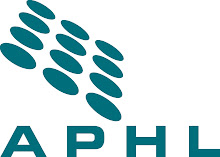Last week when President Obama signed the Senate version of the Patient Protection and Affordable Care Act into law, he initiated significant reform of the US health system. The key word here is “initiated,” because the benefits of this far-reaching new law hinge upon its successful implementation.
If governmental public health and its laboratories do not receive adequate funding to underwrite the public health provisions of the Act, then its benefits will be considerably reduced. Specifically, funding from the Prevention and Public Health Fund must be directed to the Centers for Disease Control and Prevention (CDC) for use in support of governmental public health. Anything less will belie the intent and purpose of this landmark legislation.
Key provisions of the health reform law that directly impact public health laboratories include:
• The Prevention and Public Health Fund (Sec. 4002) will fund prevention and wellness activities, including governmental public health, at $500 million beginning in fiscal year 2010 and expanding to $2 billion in 2015. These monies are provided outside of the standard annual appropriations process and in addition to the federal funding already being directed to similar programs. This funding cannot be reduced or redirected, and full disbursement is mandatory within the timeframes specified. APHL is already at work to ensure that a significant portion of fiscal year 2010 funds are directed to governmental public health programs, including those that support laboratories.
• The Public Health Workforce Recruitment and Retention Program (Sec. 5204) provides funding to expand the public health workforce through loan reimbursements and scholarships in exchange for service as a public health professional. This new program is authorized at $195 million in fiscal year 2010.
• Funding for the Epidemiology-Laboratory Capacity (ELC) grant program (Sec.4304) and public health fellowships (Sec. 5314). The ELC program, authorized for the first time, could receive annual funding totaling up to $195 million, with $32 million directed to enhancing laboratory practice and $60 million to improving information systems.
• The Fellowship Training in Public Health adds a section entitled, “Fellowship Training in Applied Public Health Epidemiology, Public Health Laboratory Science, Public Health Informatics, and Expansion of the Epidemic Intelligence Service” to the Public Health Service Act. Under this section, the laboratory fellowship program is authorized at $5 million annually, as is the Public Health Informatics Fellowship program.
Monday, March 29, 2010
Subscribe to:
Comments (Atom)




